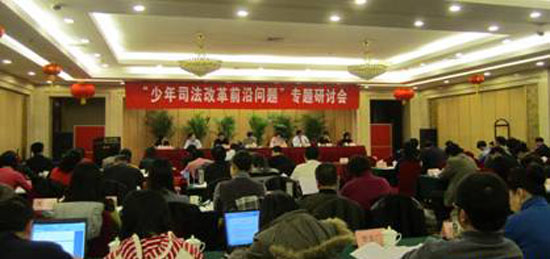
On the weekend of January 15-16, 110 judges, lawyers, prosecutors, academics, and government officials gathered in Beijing for the concluding conference of IBJ’s three-year project on juvenile justice reform in China. IBJ, in partnership with Peking University, Democracy and Rule of Law magazine, and the Shandong High Court, presented the results of Professor Chen Ruihua’s research and numerous model legal reform initiatives throughout the country, with a particular emphasis on juvenile record sealing and expungement in Shandong province.

The conference began with a panel of seven judges from Shandong Province presenting challenges and successes they faced in the implementation of the record sealing/expungement project. This initiative permitted the sealing of juvenile records after three years from the initial conviction for a low level offense. Challenges included securing the cooperation of authorities in record sealing and honoring the victims’ interests. Debate centered on whether the number of years should be extended to five. After the judges presented their experiences, an eight-person academic panel took the floor to analyze results and offer suggestions for the future. In particular, scholars made recommendations for improving survey techniques in order to acquire more useful results for later evaluation.
That afternoon two more projects were presented in a similar manner, again focusing on experiences from Shandong Province. These included the use of social investigative reports and non-custodial sentences. The next day a broader range of reforms were introduced with panelists presenting experiences from across the country, including Hebei Province, Shaanxi Province, Shanghai, Chongqing, and Beijing. In particular Hu Xia, Chief Public Prosecutor in Xi’an’s Xincheng District praised IBJ’s successful involvement in a project last year that engaged sixteen clinical students in producing six social investigation reports for use in juvenile cases.